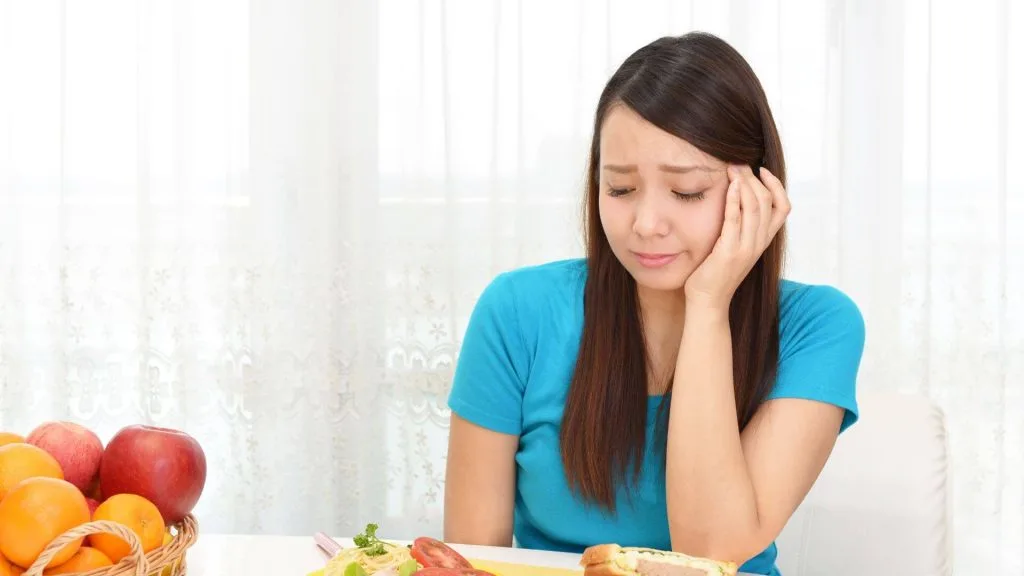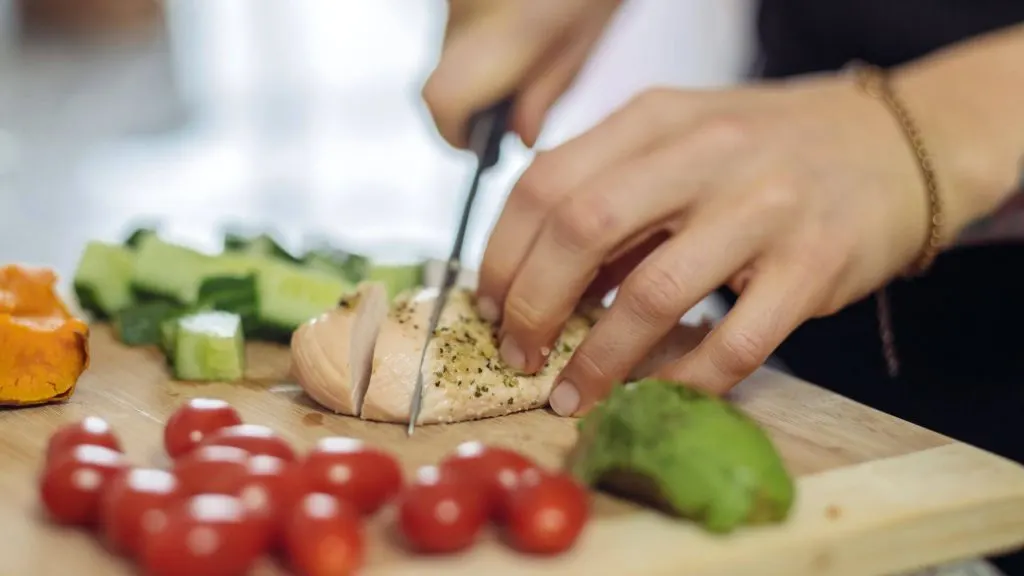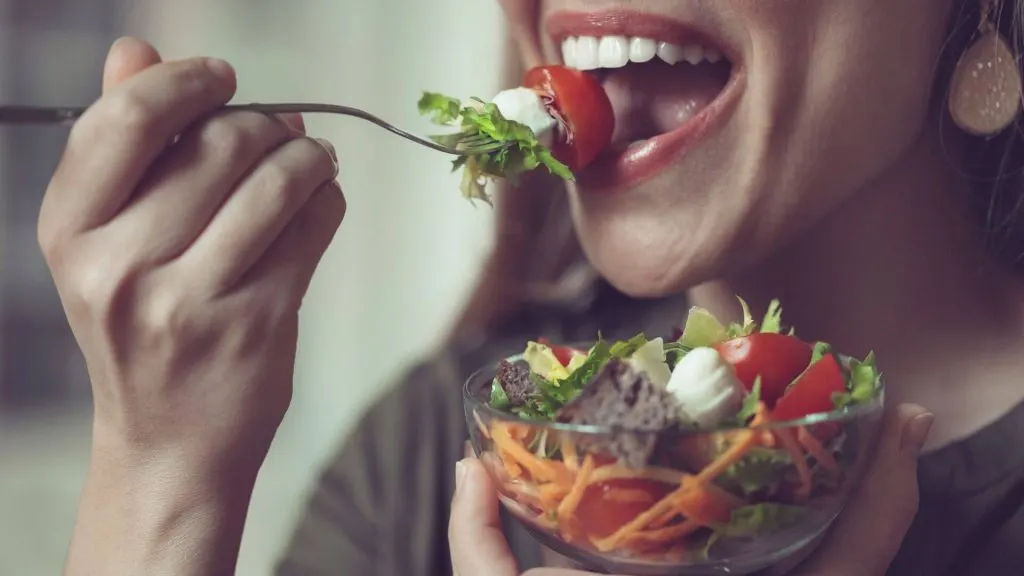Poor appetite is when you don’t have the desire to eat. In medical terms, it is known as anorexia. Ghrelin is the hunger hormone that stimulates your appetite, and leptin signals your brain when you’ve devoured enough. Many factors affect the regulation of these hormones and cause poor appetite. It is often a temporary problem that can be easily treated with lifestyle changes and medications.

Symptoms of Poor Appetite
Signs of poor appetite are unintended weight loss, not feeling hungry, nausea seeing food, hating the smell of certain foods, etc.
Causes of Loss of Appetite
People experience loss of appetite due to varied reasons. Some of the most common ones are:
- Aging
- Medical conditions such as diabetes, thyroid, and migraines.
- Flu
- Colds
- respiratory illnesses
- bacteria or viral infections
- constipation
- a disturbed stomach
- Digestive problems such as Irritable bowel syndrome
- acidity
- food poisoning
- allergies
- food intolerances
- a stomach bug or gastroenteritis
- pregnancy
- hormonal imbalances
- anxiety
- medication side effects
- alcohol or drug use
In some cases, emotional and psychological factors such as stress and depression can significantly impact one’s appetite. Addressing these underlying issues is crucial, and often, enrolling in eating disorder treatment programs can help in managing and improving appetite. Moreover, professional guidance from dietitians and therapists in these programs provides holistic support for those struggling with appetite-related challenges.

Treatment of Poor Appetite
Try Natural Supplements
Nowadays, CBD is gaining popularity for its potential to treat poor appetite.CBD is the principal psychoactive component of cannabis(also called marijuana). It contributes to an increase in appetite as it interacts with the endocannabinoid receptors of the brain.
These receptors are responsible for raised food intake. CBD is available in the form of oil, tinctures, capsules, and seeds. It is also known as CBD capsules, which are the tastiest and easiest option for consideration. Before having CBD, always consult a healthcare provider for the safest consumption.
Have Small Frequent Meals
It is easier to have more small meals than have one large one. As your appetite improves, try increasing the portion of your meals without changing the time. Also, add up more nutritious ingredients full of proteins and fibers.

Don’t Skip Breakfast
Never skip breakfast when trying to boost appetite as it enhances thermogenesis in the body. Thermogenesis is the process of heat production in the body that results in increased metabolism and the burning of calories. Burning more calories throughout the day will make you hungry and eat more.
Regular Exercise
Exercise is a must for people of all age groups. Whenever you start working out, you feel more hungry. It is the way your body tells you to fuel your body again for the next set of exercises or tasks for the day. Hence exercise heightens your will to eat and is also beneficial for your comprehensive health.

Use Kitchen Spices
Try using spices and herbs from the kitchen such as Garlic, Cardamom, Ginger, Fennel seeds, Peppermint, Cinnamon, and Black pepper. They all decrease gas and bloating, and increase your interest in food, thus aiding in boosting your appetite. You can sprinkle them on top of foods, add them to your food or consume them as herbal teas.
Proper Sleep
Lack of sleep may cause ghrelin levels to rise, which may cause over-eating and consumption of high-calorie foods. In the long term, it may cause flatulence and a decline in appetite. Therefore one must always take good care of his sleep cycle. At least sleep for six to eight hours at night for proper rest and recovery.
Hydrate
Drink plenty of water as loss of appetite is also a sign of dehydration. Electrolytes in water, such as Sodium and potassium, play a significant role in keeping track of the metabolism of the body and increasing appetite. Lack of electrolytes may cause dizziness and curb appetite. Drinking at least eight liters of water daily is crucial to maintaining a healthy weight and body.

Eat on different size plates
If you have a poor appetite, noticing large fractions of food can be overwhelming and dismal.
To resist feeling overwhelmed, trick your brain into thinking you are still eating small portions. You can do this by serving your food on a large plate instead of a tiny plate.
Some studies have shown that increases in plate size can compel you to serve larger food quantities. This is true even when you do not like the food all that much.
In other words, you could eat more food if you serve it in a larger dish. This could increase your daily calorie intake, especially if you eat high-calorie foods.
Eat your favorite foods
The sense for this policy is pretty reasonable — Choose foods you love to eat.
When you sit at the table in front of a meal you know you will enjoy, you’re possibly much more likely to eat it than a dish you find unappealing.
Study shows that if you can choose what to eat, you will tend to eat better and more often than if you did not have the choice to pick your foods.
To ensure you eat more of those foods, it is significant you take some time to schedule and prepare them ahead of time so you can always have them available.

Treating poor appetite is possible and easy. The remedies mentioned above are inexpensive and can be followed in the comfort of your home. Although, get in touch with your doctor immediately if you start to lose weight very quickly for no apparent reason. It’s also essential to seek timely medical assistance if your decreased appetite could result from depression, alcohol, or an eating disorder such as anorexia nervosa or bulimia.

Jessi is the creative mind behind The Coffee Mom, a popular blog that combines parenting advice, travel tips, and a love for all things Disney. As a trusted Disney influencer and passionate storyteller, Jessi’s authentic insights and relatable content resonate with readers worldwide.
